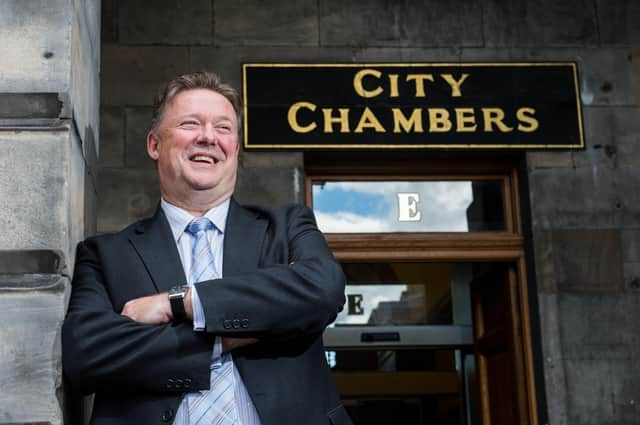Departing chief exec Andrew Kerr’s sorry city council legacy - John McLellan


Admittedly, I’m hardly the most reliable narrator of Mr Kerr’s domineering record, having been reported to the Standards Commission by him two years ago in what became an attack on my reputation. I was only cleared in October.
He also warned me off the planning application for the Dunard Concert Hall, part of the City Deal in which he was heavily involved, because I had pointed out the inconsistencies in the way the planners wished to waive their own policies. Lo and behold, after the application went through, it ended up in an expensive legal wrangle which the Council duly lost.
Advertisement
Hide AdAdvertisement
Hide AdAnd it is the use of the law to defend the council’s positions, no matter the cost, which will be his monument, not his vacuous, utopian 2050 Vision, an empty, expensive and political attempt at futurology by someone whose neutrality was always questionable.
That approach informed the Cityplan 2030, the unrealistic blueprint for the city’s development which shied away from vast challenges, notably housing supply, and could yet be rejected by the Scottish Government.
Virtually throughout his watch, Edinburgh Council fought over every detail to delay justice for John and Deirdre Travers, the married officers who were subjected to a campaign of appalling abuse after blowing the whistle on corruption.
The incidents were admittedly before his time, but rather than drawing a line under the affair they were dragged through the courts for a further six years after his appointment.
Advertisement
Hide AdAdvertisement
Hide AdThe Travers’ case was at the heart of the 2021 review of the Council’s management culture, which found there was “not a universally positive, open, safe and supportive whistleblowing and organisational culture”.
But while the report author Suzanne Tanner KC praised Mr Kerr for improvements, the whistleblowers, the victims, dismissed it as a whitewash.
With reluctance he accepted the 2021 culture inquiry, but perhaps Council leader Cammy Day gave the game away yesterday by praising his “important work with Suzanne Tanner KC and her inquiry team,” when the whole process was supposed to be independent of the authority.
It took a further two years to reach a final settlement with the Travers family, a fight for justice as lengthy as postmasters and mistresses, in which the Council’s priority was always its reputation.
Advertisement
Hide AdAdvertisement
Hide AdThe dogged use of the law would not have been possible without the support of chief legal officer Nick Smith, the solicitor heavily criticised in Lord Hardie’s tram report for misleading councillors, to the extent that Lord Hardie recommended the introduction of new criminal offences.
It was therefore no shock when Mr Kerr declared a secret internal appraisal found no action was necessary and strongly resisted calls for independent scrutiny of the decision. Nevertheless, councillors voted for the examination, as clear a vote of no confidence as when he was ditched as Wiltshire chief executive in 2001.
Although quite something from someone who was Mr Kerr’s stoutest defender when he led the council, for once I agree with the SNP leader Adam Nols-McVey who said he hoped his replacement will "help accelerate the change we badly need”. Who knew opposition induces amnesia?
Sadly, Mr Kerr’s greatest contribution to changing the council’s culture will be to leave.
Comment Guidelines
National World encourages reader discussion on our stories. User feedback, insights and back-and-forth exchanges add a rich layer of context to reporting. Please review our Community Guidelines before commenting.
